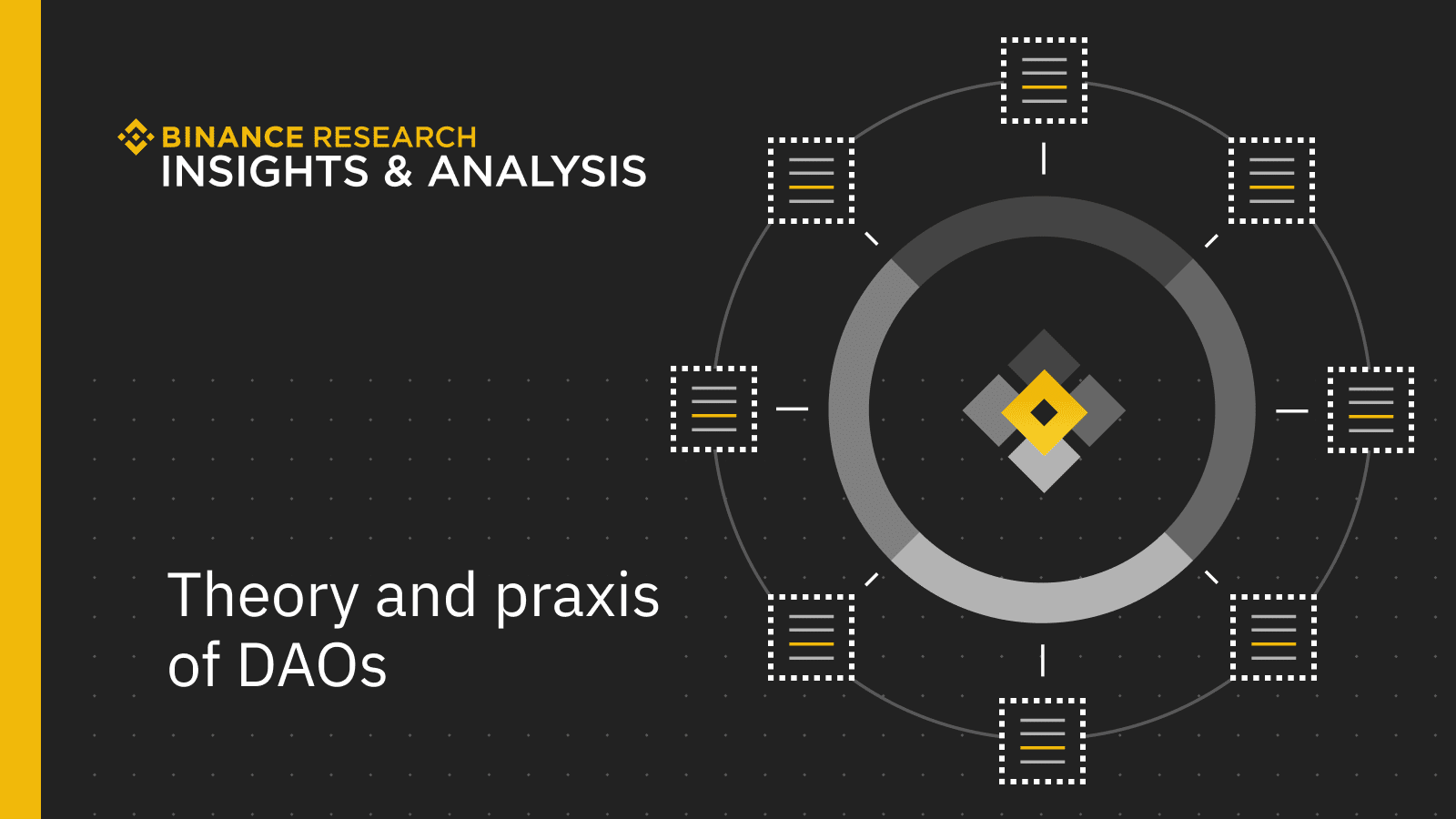Binance Research has published a new report on Decentralized Autonomous Organisations (DAO), proposing new ways to design and classify them.
According to the report, DAOs need further theoretical research in order to grow and scale.
The study, entitled “Theory and praxis of DAOs“, examines the status quo of DAO organizations, analyses the existing research and proposes a new classification taxonomy while also offering a list of key actions that must be carried out to promote their growth and development.
According to Binance Research, DAOs can be classified with a taxonomy based on four key elements:
- multilateral agreements;
- resource management;
- the discussion process;
- the voting process.
The report defines a DAO as
“An organizational form that coordinates the efforts and resources of members via an a priori binding, formalized, and transparent set of rules that are agreed upon in a multilateral fashion”.
Binance Research also reveals that DAOs are experiencing a new phase of popularity, partly due to the numerous prototypes already working in a wide variety of different forms: blockchains, ecosystems, protocols, natural resources and mutual insurance.
Speaking of DAO and DeFi, Luca Cotta of ETHLend and ICOBech explained to The Cryptonomist:
“The push for DeFi’s growth has been supported by the teams that are part of it, that is, the same teams have also invested, on a personal level, in the same project. Indeed, a project succeeds because it is also supported by them. The DeFi sector is a mix of different projects and thus can only grow”.
However, the theoretical basis on which the DAOs are based could be improved and could guarantee them the possibility to scale, reaching the coordination of a large number of members.
As far as the points with the greatest room for improvement are concerned, the study highlights two in particular:
- incentive models based on game theory;
- conscious design decisions.
In particular, incentive models are necessary to align interests between DAOs and their members. In addition, well-designed models can help DAOs avoid Byzantine behaviour, govern common assets and overcome issues such as the prisoner’s dilemma, as well as encourage voter turnout, often unfortunately extremely low in governance decisions.
The study also reveals that two types of DAO exist before the law: that of a legal entity with a legal person and that of a legal entity without a legal person.
The first fully integrates a DAO into the existing legislative environment, as it allows direct control over off-chain resources and commitment to legally binding agreements.
Whereas the second is the one closest to the purist vision of an organisational form independent of the existing legislative context.




